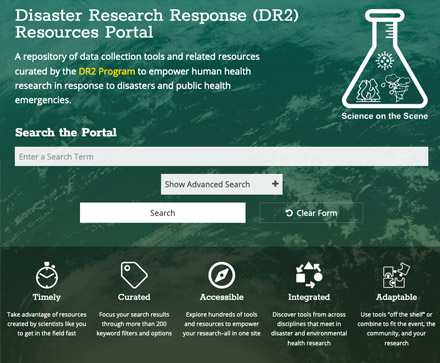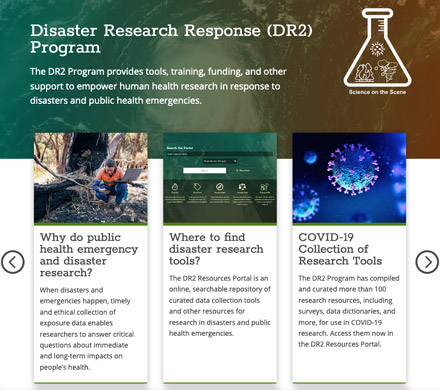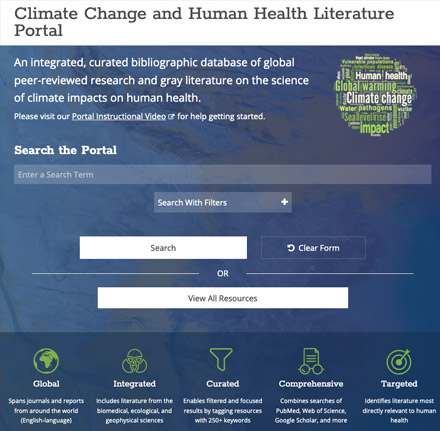By Kenda Freeman

As the climate changes, so may the frequency of extreme weather events and associated natural disasters. The surge of disasters and public health emergencies in the U.S. over the past decade has led to growing calls for additional high quality and timely research. Environmental health sciences research has taken notable strides in this area, helping to advance knowledge about the impacts that disasters and public health emergencies can have on human health and wellbeing.
NIEHS has been a leader in climate and disaster research, backed by years of biomedical, epidemiological, and environmental data from research teams across the nation. The institute has long recognized the importance of accessible tools that enable scientists to design, conduct, and collaborate on research in ways that benefit people, particularly disadvantaged communities, affected by disasters and public health emergencies.

Established in 2016, the NIH Disaster Research Response (DR2) Program spearheads national efforts and works with global partners to improve capacity for timely research on disasters and public health emergencies, including those exacerbated by climate change. The DR2 Program is led by NIEHS Senior Medical Advisor Aubrey Miller, M.D.
Recently, as part of the program's new website launch, the program released the DR2 Resources Portal in a new, user-friendly format. The portal is an electronic repository that includes 500 data collection tools, such as surveys, questionnaires, research protocols, and consent forms, to aid researchers who are exploring the health impacts of disasters and public health emergencies. Resources related to COVID-19 were recently added to the collection.

The DR2 Resources Portal is a great complement to the NIEHS Climate Change and Human Health Literature Portal . Developed in 2014, the CCHH Literature Portal is a database of global peer-reviewed research and gray literature featuring the science of climate impacts on human health. The portal is updated on an ongoing basis and currently includes more than 14,000 peer-reviewed articles and scientific papers published between 2007 and 2020. The resource was created to provide researchers, educators, students, public health experts, and other stakeholders access to relevant literature that explores the link between climate change, extreme weather events, and emerging public health issues.
"These two resources work hand-in-hand to help the research community understand how our changing climate is affecting health," said Miller. "They also provide the tools and resources needed to better design and implement time-critical studies to address the intertwined and increasingly severe crises of climate change and natural disasters."

